

دوراتنا
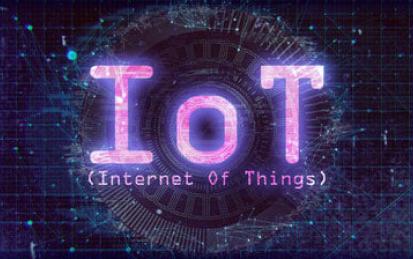
Introduction to the Internet of Things
This is a preliminary course in which we deal with the basics of electronics and programming using Arduino and ESP boards.
-
Course by

-
 الإنجليزية
الإنجليزية

Digital Signal Processing 1: Basic Concepts and Algorithms
Digital Signal Processing is the branch of engineering that, in the space of just a few decades, has enabled unprecedented levels of interpersonal communication and of on-demand entertainment. By reworking the principles of electronics, telecommunication and computer science into a unifying paradigm, DSP is a the heart of the digital revolution that brought us CDs, DVDs, MP3 players, mobile phones and countless other devices. In this series of four courses, you will learn the fundamentals of Digital Signal Processing from the ground up.
-
Course by

-
 التعلم الذاتي
التعلم الذاتي
-
 29 ساعات
29 ساعات
-
 الإنجليزية
الإنجليزية
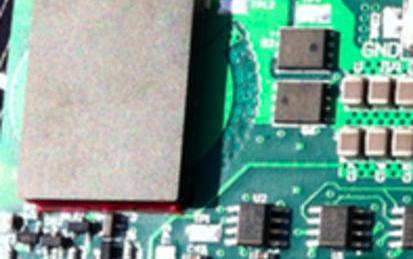
Power Electronics
Design modern switched-mode power converters; create high-performance control loops around power converters; understand efficiency, power density and cost trade-offs By 2030, 80% of all electrical energy will be processed by power electronics. Professional advantages continue to grow for technical engineers who understand the fundamental principles and technical requirements of modern power conversion systems. This specialization covers design-oriented analysis, modeling and simulation techniques leading to practical engineering of high-performance power electronics systems.
-
Course by

-
 Self Paced
Self Paced
-
 الإنجليزية
الإنجليزية
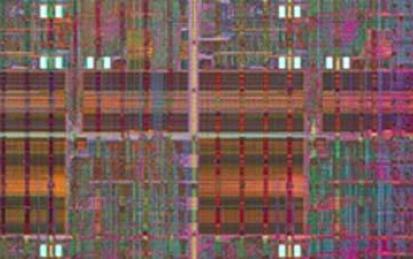
Circuits and Electronics 1: Basic Circuit Analysis
Learn techniques that are foundational to the design of microchips used in smartphones, self-driving cars, computers, and the Internet.
-
Course by

-
 الإنجليزية
الإنجليزية
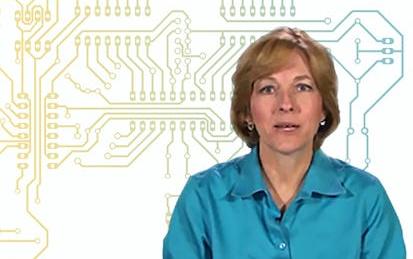
Introduction to Electronics
This course introduces students to the basic components of electronics: diodes, transistors, and op amps. It covers the basic operation and some common applications.
-
Course by

-
 Self Paced
Self Paced
-
 46 ساعات
46 ساعات
-
 الإنجليزية
الإنجليزية
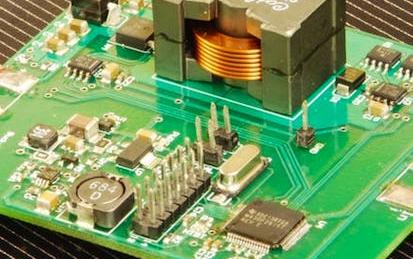
Magnetics for Power Electronic Converters
This course can also be taken for academic credit as ECEA 5703, part of CU Boulder’s Master of Science in Electrical Engineering degree. This course covers the analysis and design of magnetic components, including inductors and transformers, used in power electronic converters. The course starts with an introduction to physical principles behind inductors and transformers, including the concepts of inductance, core material saturation, airgap and energy storage in inductors, reluctance and magnetic circuit modeling, transformer equivalent circuits, magnetizing and leakage inductance.
-
Course by

-
 Self Paced
Self Paced
-
 17 ساعات
17 ساعات
-
 الإنجليزية
الإنجليزية

Energy, Environment, and Everyday Life
For a sample of what this course will include, see the video "Energy, Environment, and Everyday Life MOOC with University of Illinois Professor David Ruzic" - http://go.citl.illinois.edu/Energy-MOOC This course teaches you everything you need to know about energy, the environment, and at least a number of things in everyday life. It starts by talking about energy itself and where it comes from. This includes how much we have, who has it, who uses it, and what that all means.
-
Course by

-
 Self Paced
Self Paced
-
 47 ساعات
47 ساعات
-
 الإنجليزية
الإنجليزية

Microwave engineering and antennas
This unique Master-level course provides you with in-depth know-how of microwave engineering and antennas. The course combines both passive and active microwave circuits as well as antenna systems. Future applications, like millimeter-wave 5G/beyond-5G wireless communications or automotive radar, require experts that can co-design highly integrated antenna systems that include both antennas and microwave electronics.
-
Course by

-
 Self Paced
Self Paced
-
 38 ساعات
38 ساعات
-
 الإنجليزية
الإنجليزية

Introduction to Power Electronics
This course can also be taken for academic credit as ECEA 5700, part of CU Boulder’s Master of Science in Electrical Engineering degree. This course introduces the basic concepts of switched-mode converter circuits for controlling and converting electrical power with high efficiency. Principles of converter circuit analysis are introduced, and are developed for finding the steady state voltages, current, and efficiency of power converters.
-
Course by

-
 Self Paced
Self Paced
-
 12 ساعات
12 ساعات
-
 الإنجليزية
الإنجليزية
Digital Marketing Capstone
This four-week Capstone of the Digital Marketing Specialization is designed to help you apply the principles you have learned in the previous courses. This capstone course is designed to give you hands-on experience in executing a digital marketing campaign for a fictitious firm selling electronics. In the previous courses on analytics and channels, you came up with strategies to identify a firm’s objectives, specify a few key ones, research alternatives to reaching the customer in their decision journey and finally propose a multi-channel digital marketing plan.
-
Course by

-
 Self Paced
Self Paced
-
 14 ساعات
14 ساعات
-
 الإنجليزية
الإنجليزية

Converter Control
This course can also be taken for academic credit as ECEA 5702, part of CU Boulder’s Master of Science in Electrical Engineering degree. This course teaches how to design a feedback system to control a switching converter. The equivalent circuit models derived in the previous courses are extended to model small-signal ac variations. These models are then solved, to find the important transfer functions of the converter and its regulator system.
-
Course by

-
 Self Paced
Self Paced
-
 19 ساعات
19 ساعات
-
 الإنجليزية
الإنجليزية

Converter Circuits
This course can also be taken for academic credit as ECEA 5701, part of CU Boulder’s Master of Science in Electrical Engineering degree. This course introduces more advanced concepts of switched-mode converter circuits. Realization of the power semiconductors in inverters or in converters having bidirectional power flow is explained. Power diodes, power MOSFETs, and IGBTs are explained, along with the origins of their switching times. Equivalent circuit models are refined to include the effects of switching loss. The discontinuous conduction mode is described and analyzed.
-
Course by

-
 Self Paced
Self Paced
-
 19 ساعات
19 ساعات
-
 الإنجليزية
الإنجليزية
Introduction to FPGA Design for Embedded Systems
This course can also be taken for academic credit as ECEA 5360, part of CU Boulder’s Master of Science in Electrical Engineering degree. Programmable Logic has become more and more common as a core technology used to build electronic systems. By integrating soft-core or hardcore processors, these devices have become complete systems on a chip, steadily displacing general purpose processors and ASICs. In particular, high performance systems are now almost always implemented with FPGAs.
-
Course by

-
 Self Paced
Self Paced
-
 18 ساعات
18 ساعات
-
 الإنجليزية
الإنجليزية

Input Filter Design
This course can also be taken for academic credit as ECEA 5707, part of CU Boulder’s Master of Science in Electrical Engineering degree. This is Course #3 in the Modeling and Control of Power Electronics course sequence. After completion of this course, you will gain an understanding of issues related to electromagnetic interference (EMI) and electromagnetic compatibility (EMC), the need for input filters and the effects input filters may have on converter responses.
-
Course by

-
 Self Paced
Self Paced
-
 11 ساعات
11 ساعات
-
 الإنجليزية
الإنجليزية

Current-Mode Control
This course can also be taken for academic credit as ECEA 5708, part of CU Boulder’s Master of Science in Electrical Engineering degree. This is Course #4 in the Modeling and Control of Power Electronics course sequence. The course is focused on current-mode control techniques, which are very frequently applied in practical realizations of switched-mode. Practical advantages of peak current mode control are discussed, including built-in overcurrent protection, simpler and more robust dynamic responses, as well as abilities to ensure current sharing in parallel connected converter modules.
-
Course by

-
 Self Paced
Self Paced
-
 14 ساعات
14 ساعات
-
 الإنجليزية
الإنجليزية

Averaged-Switch Modeling and Simulation
This course can also be taken for academic credit as ECEA 5705, part of CU Boulder’s Master of Science in Electrical Engineering degree. This is Course #1 in the Modeling and Control of Power Electronics course sequence. The course is focused on practical design-oriented modeling and control of pulse-width modulated switched mode power converters using analytical and simulation tools in time and frequency domains. A design-oriented analysis technique known as the Middlebrook's feedback theorem is introduced and applied to analysis and design of voltage regulators and other feedback circuits.
-
Course by

-
 Self Paced
Self Paced
-
 16 ساعات
16 ساعات
-
 الإنجليزية
الإنجليزية

Techniques of Design-Oriented Analysis
This course can also be taken for academic credit as ECEA 5706, part of CU Boulder’s Master of Science in Electrical Engineering degree. This is Course #2 in the Modeling and Control of Power Electronics course sequence. The course is focused on techniques of design-oriented analysis that allow you to quickly gain insights into models of switching power converters and to translate these insights into practical converter designs. The design-oriented techniques covered are the Extra Element Theorem and the N-Extra Element Theorem (N-EET).
-
Course by

-
 Self Paced
Self Paced
-
 12 ساعات
12 ساعات
-
 الإنجليزية
الإنجليزية



